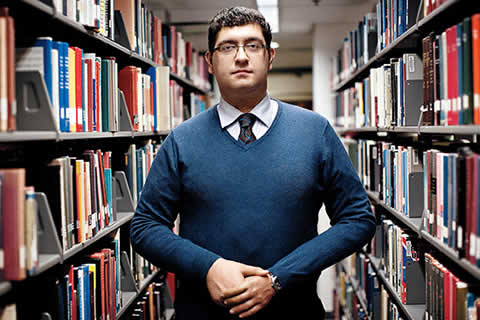At universities, students often talk about emerging from academe into the “real world.” But in one novel U of T course, the real world comes to university: U of T students sit side-by-side with Toronto residents – many of whom never went on to higher education – to discuss classic texts, such as economist Adam Smith’s The Wealth of Nations.
James Janeiro, a master’s student at the School of Public Policy and Governance, says the Humanities for Humanity course has given him a fresh perspective on ideas that shape our society.
The non-credit course, founded six years ago and offered through Victoria University and Trinity College (and one part of Victoria’s “Ideas for the World” program), brings together 30 students and 30 community members once a week. The participants start with a meal together, and then listen to a lecture from a U of T expert – philosophy professor Mark Kingwell on Machiavelli, for example. Afterward, they break into small groups for discussion.
The exchanges are often lively and eye-opening, says Janeiro (BA 2010 Victoria). Kingwell’s Machiavelli lecture, for example, prompted many participants – some of them newcomers to Canada – to talk about their interactions with politicians and the state and their expectations from elected officials. “We had a very in-depth, detailed conversation about the nature of politics and what people want from their government,” he says.
After completing his master’s degree, Janeiro hopes to attend law school, and then enter the foreign or civil service, with the eventual goal of running for elected office. He values Humanities for Humanity for the variety of perspectives if offers – and for taking “academic” topics out of the classroom and away from students’ typical concerns about exams and quizzes.
“It’s not necessarily about teaching people European history or how to speak Mandarin,” Janeiro says. “It’s teaching people to think in a way that goes beyond the confines of what they know and what they’ve studied, and what they’re comfortable with.”






